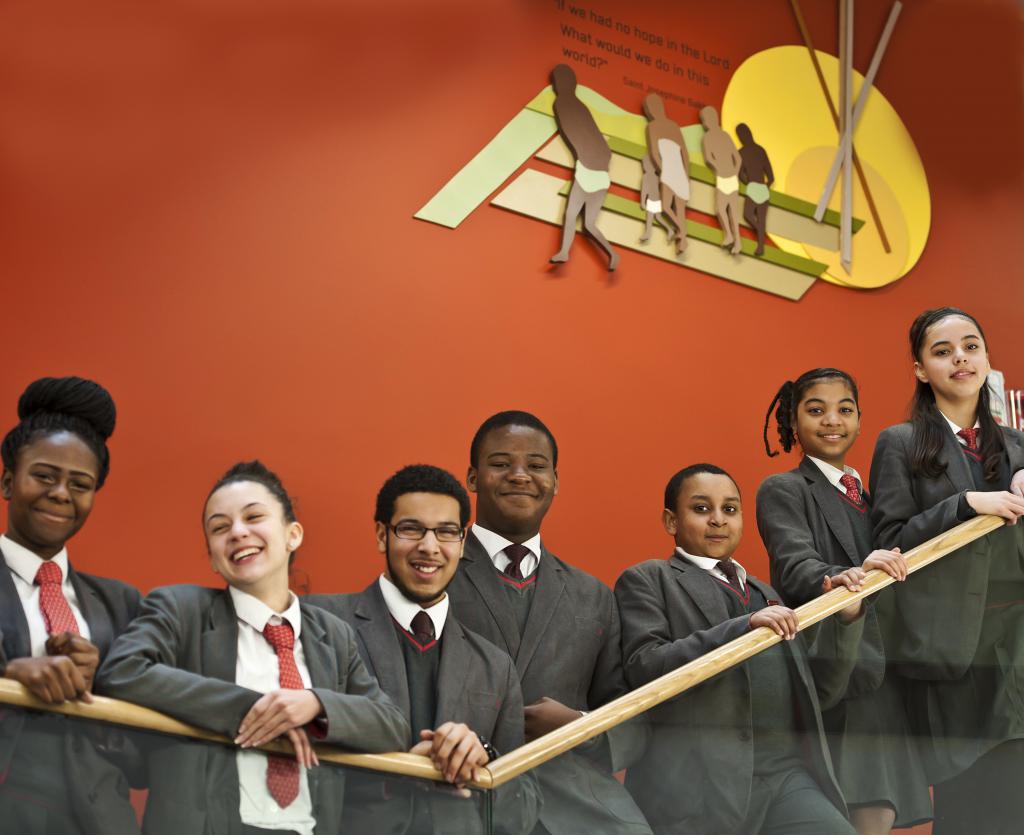by Bishop John Wilson
Chair of the Diocesan Education Commission
Education Sunday falls on 9th September this year and provides an opportunity to celebrate the achievements of Catholic schools and colleges across our diocese. Since becoming Chair of the Diocesan Education Commission I have witnessed first-hand the impressive work that is taking place and seen the breadth of talents and ability of our children and young people. Struck by the dedication and enthusiasm of staff, governors, and clergy, I have heard the appreciation of families both grateful for, and desirous of, places in Catholic education. At primary, secondary, and tertiary level there are so many examples of excellence. Overwhelmingly, our schools have a clear sense and application of their Catholic identity. Existing within a network of good relationships, in and beyond their local communities, they put the needs of pupils and students at the centre of everything they do.
We often hear talk of the 'distinctiveness' of Catholic education. One way to explore what this means is to ask what are the qualities and aspirations of any fantastic school. We certainly don't have a monopoly on striving to ensure every student reaches their potential, nor in creating learning environments where each person is valued and nurtured, or where everyone is enabled to make their unique contribution to society. These are fundamental elements which are shared across the enterprise of education.
It is, however, when we ask additionally what are the qualities and aspirations of a fantastic Catholic school that we begin to elicit the specificity of Catholic education. Our holistic approach is rooted in our faith in the person of Jesus Christ and in the teaching of his Church. We believe the search for excellence also has a spiritual dynamic based on the Gospel such that education and formation are integrated within the journey of personal discipleship. Worship and prayer, the spirit of Christian virtue, human and moral development, are all underpinned by the desire that Christ is known and loved so that our lives might overflow with that sense of service which reflects his truth and beauty.
In the last academic year, the families of 91,650 children and young people chose Catholic education, including some who were not Catholics themselves. Our students are from a wide diversity of communities and backgrounds. Through 163 Catholic primary schools, 39 Catholic secondary schools and sixth forms, and 18 Catholic independent schools, we seek to serve all areas of our diocese.
We are proud that 97.6% of all diocesan schools are judged to be good or outstanding according to their Section 48 religious inspections, which inspect classroom Religious Education and the Catholic life of the school. And that 96.4% of all diocesan schools are judged to be good or outstanding according to their Ofsted inspections. No diocesan school, either primary or secondary, was rated 'Inadequate' by Ofsted in 2017 or 2018. Where a school requires improvement the Diocesan Education Service works with the local authority to assist staff and governors.
A total of £59 million of capital investment in 118 projects was completed in diocesan schools during the past year, and 36 new headteachers and 18 new deputy headteachers were appointed. The diocesan programme for academisation also made progress in the last academic year with Academy Orders granted by the Department for Education for the Harrow Family of Schools and the Brent Family of Schools within the All Saints Trust. Other groups of schools are preparing to move forward in the near future.
Given such success, our sincere thanks go to our headteachers and senior leaders, to staff and to governors, to students and their families, and to clergy and local parishes. Catholic education does not happen by chance. It requires sustained commitment to ensure that the Church's mission in education is carried out faithfully, building on the historic legacy which has always prioritised schools. Today, more than ever, we recognise that collaboration and interdependence between our schools and colleges, working with the services of the diocese, provide the best possible security for each in the context of the whole.
This said, we cannot be complacent about the challenges facing Catholic education. The factors that hinder the proclamation of the Gospel more generally are equally present in our schools. Our culture is sometimes indifferent, even hostile, to faith and religious practice and this affects Catholic education too. We remain disadvantaged by the fifty percent cap on new Catholic schools. There are secular voices which seek to remove the right of Catholic schools to exist with a distinctive vision of faith based on Catholic teaching. Maintaining standards and recruiting and retaining staff require constant effort.
Financial and local authority support have been reduced with a knock-on impact on schools. In certain areas of the diocese schools are oversubscribed; in others there are surplus places. Trying to foresee the impact of changing population patterns and the possible impact of Brexit are additional factors shaping our consideration of educational strategy.
What remains certain is our belief that Catholic education continues to be a necessary and essential reality of the Church's mission in the service of the Gospel, of our communities, and of society. It draws its foundational conviction from the compelling commission given by the Lord Jesus: 'Go, therefore, make disciples of all nations; baptise them in the name of the Father, and of the Son, and of the Holy Spirit, and teach them to observe al the commands I gave you.' (Mt 28:19-20) The Lord's instruction to the fledging Church has inspired, and continues to inspire, generation after generation to teach and form the next generations according to the living Word who is Christ, our Saviour and our teacher.


